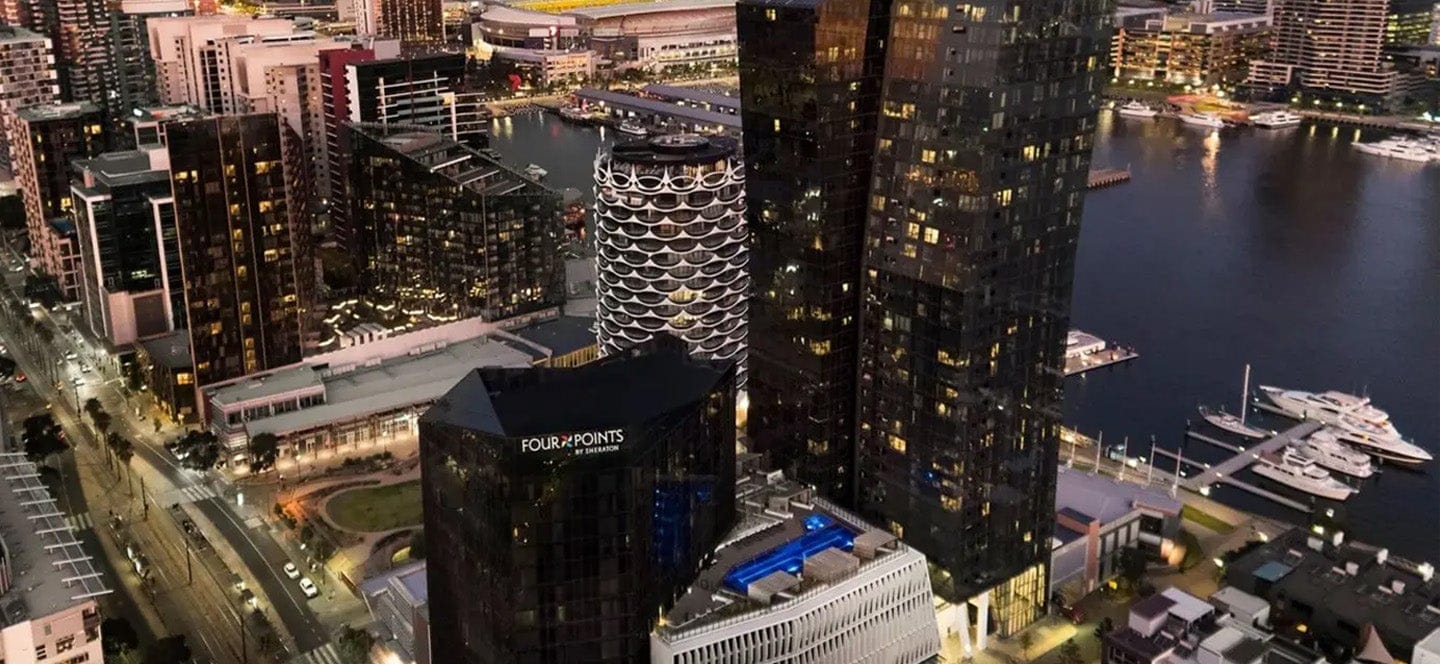
This article was originally posted on Urban Developer.
It’s almost as if Covid didn’t happen in the hotel sector.
Annual daily rates (ADR) materially outperformed 2019 rates across all major markets, according to CBRE.
International tourists have returned with a vengeance, even if there is still headroom to grow those numbers, with 7.2 million international arrivals last year, down 24 per cent in 2019.
Huge events such as the Taylor Swift concert tour touching down in the capitals have also had a material impact—Swift’s concerts in Sydney drove spending in the city up 20 per cent, according to NAB—an estimated $135 million—with a 70 per cent uptick in accommodation spending.
But many have described the Taylor Swift effect as a “sugar hit”, including Veriu co-founder Rhys Williams.
Speaking at The Urban Developer Hotel Summit on March 22, Williams said it had been a good injection in the arm for the hotel sector.
This makes hotels an attractive space for investors, according to Anthony O’Hea, who spent 17 years at developer Toga Group before moving last year to MA Financial as managing director of principal investments, real estate.
- Anthony O'Hea
In fact, STR regional director Matthew Burke says that they had sold more hotel rooms this year than in 2019, moving occupancy towards a full recovery. Occupancy for 2023 was 69 per cent.
But the huge impacts of construction price and interest rate rises on development and finance costs are making existing properties rather than new assets appealing.
Inevitably, this is making it a tricky time for developers operating in this space.
Hotel resilience
Despite its dark times, Covid showed investors the true resilience of hotels.
“If you got set in an asset between 2017 and 2022, purely from an interest rate and cost of debt capital perspective, it has been really hard,” O’Hea says.
“Covid has created a big cash hole, but most were able to sustain ownership.
“[It showed that] the potential of these existential events to impact hotels as going concern assets, switching off all revenue and income profitability, causing capital structures to collapse and decimate valuations, was not the case.”
This has clearly impacted prices, with the average size of hotel transactions at $47.1 million in 2023, up 26.4 per cent from 2022, according to Savills.
Transactions have started strong in 2024, with Savills facilitating the sale of the 273-key The Four Points by Sheraton Melbourne Docklands for $96 million.
And the Ace Hotel at Surry Hills has recently been listed with a price tag of $300 million.
Gatehouse Hospitality managing director Arnaud Millecamps says there is an acceleration in the asset-light hotel model with a move away from independent boutique hotels.
“Branded properties tend to be more profitable—one of the key reasons is the guest acquisition cost,” Millecamps says.
“Hotels are in the business of brand management.”
Tricky time for investors
But things have still been tricky for investors in the space, compounded by the fact that hotels have traditionally been the province of private investors.
“As has been the case with all assets, there has been a softening of valuation yields,” O’Hea says.
“With most being in private hands, they might have more debt than they could handle and it’s hard for private owners to draw on equity.
“When you put those things together, the resilience and robustness of the sector trading-wise and what’s happened with debt capital, you need to transition out of the assets.
“That’s an interesting dynamic for the buyer to be involved in.”
This is cyclical of course—supply increases as existing asset owners look to offload and there are fewer new hotels coming to market.
“This is something we saw after the GFC, where a buying window opened up with similar characteristics as we’re seeing now,” O’Hea says.
Wave of supply
Supply is everything in the hotel markets.
“There has been a significant wave of supply, particularly in Sydney and Melbourne, during the past few years, equating to 25 per cent in total inventory in Melbourne, which is obviously very substantial,” O’Hea says.
This could mean that there will be an oversupply in these markets.
“But I’m ‘glass half-full’ in relation to that,” O’Hea says.
“Despite ongoing structural impacts, with inbound arrivals still lagging—as we’re waiting to see the proper return of Chinese tourists—and the fact there is still significant supply, RevPAR [revenue per available room] performance is a massive endorsement of particularly the Sydney and Melbourne markets to absorb supply.”
RevPAR in 2023 surpassed the pre-pandemic 2019 performance, according to a Savills report this year, and further growth is expected.
But this strong existing supply puts a question mark over new development.
“Right now, you can buy assets in the market for a substantial discount compared to what it would cost to build that asset,” says O’Hea.
“Almost across the board, everything represents a 25 per cent discount to replacement value, just based on raw construction costs, which doesn’t take into account cost of land, development costs and so on.
“With this supply wave close to its end now, there won’t be a lot of new supply for a long time because it makes no sense when you can buy existing stock for less than it costs to construct.”
Developers have clearly caught on to this tricky situation—Central Element has put two major Sydney hotel projects to market—the Minerva Theatre and the Olympia Theatre redevelopments—as it moves towards high-end residential.
Colliers head of hotels, transaction services Karen Wales says while about 40,000 rooms have been added in the past decade, the development cycle was coming to an end.
“I don’t think we will see more development for four to five years with construction costs where they are,” Wales told delegates at The Urban Developer Hotel Summit.
“But there’s a lot of dry powder that’s been sitting on the sidelines. Stabilisation is giving investors more confidence, and investors are not buying on today’s income figures, they’re buying on future growth potential.”
Opportunities remain
While the cycle is not new, its peaks and troughs were exacerbated by Covid, as many asset classes were.
“If you can get set in assets in these windows, you can do well,” O’Hea says.
“It’s a strategy of asking: ‘does it represent particular value through cycle? Is there the opportunity to generate existing returns?’.”
But there remain major opportunities in the investment space developers can keep an eye on.
“While other markets have their appeal, Sydney and Melbourne in particular have proven to be really strong ... and have a really great mix of corporate and leisure demand drivers, and they’ve shown over time that they have ability to absorb supply,” O’Hea says.
“But whatever happens, right now, existing hotels present appealingly to us from an investment perspective.”
It was something developers at the hotel summit also agreed on. Any existing asset had to be worth more given the current construction and supply constraints, McVay Real Estate managing partner Sam McVay says.
“We did $1.1 billion in transactions last year,” he says.
“If you find something you really like you will need to pin your ears back because there is not going to be a lot of supply.”


